We Go to the Gallery: An interview with author and artist Miriam Elia
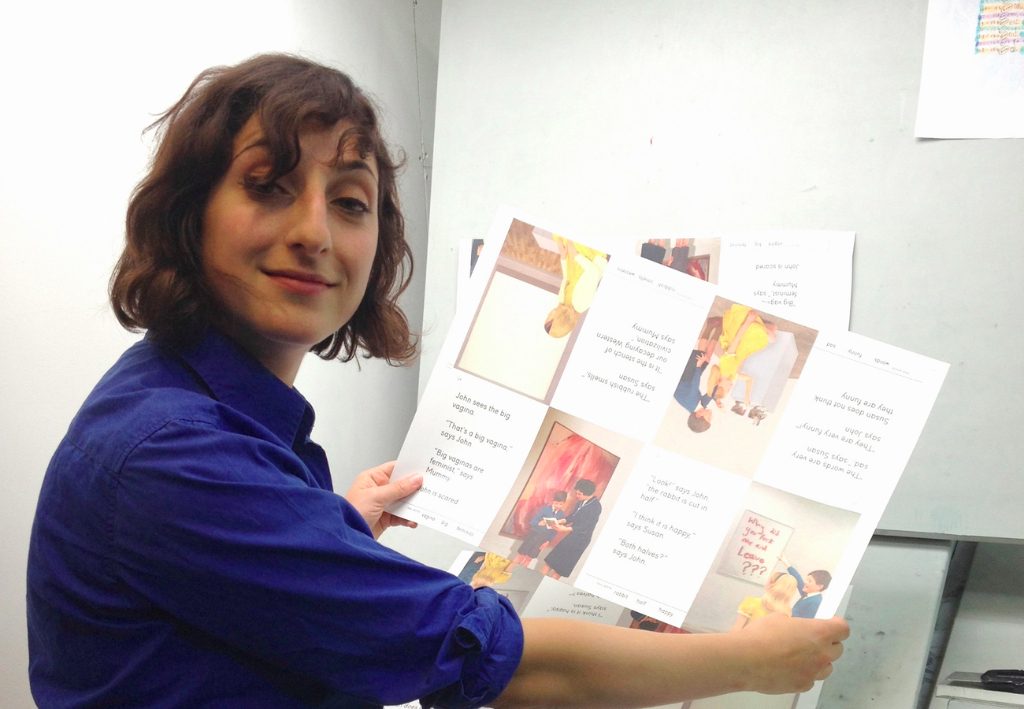
Miriam Elia is an artist-turned-comic-turned-author from London. After the success of her first book We Go to the Gallery in 2014, a satire of contemporary art and the world-view it embodies, Elia will soon be releasing the sequels 1b We Go Out and 1c We Learn at Home, which take the satire out of the gallery and into the world at large. We met up with Elia to talk about her inspiration for the series and the state of the modern art and comedy worlds today.
We Go to the Gallery was met with great success in 2014. What was your inspiration for the series?
Originally it was about contemporary art, but from that came the idea of creating a satirical book that was an art piece and a commentary on where we were in the world. I always envisioned it as a series of books rather than just one, but I had no idea if it was going to be successful. It just struck me that it says “1a” so there’s got to be a 1b and 1c, and I really enjoy making them, because it’s a slow painterly process, and a lot goes into them.
Do you start with the painting or the text?
It’s funny – I start visually all the time and then I add my commentary to it afterwards, whilst a lot of people would work the other way round, but I never do. Sometimes I do straight writing, but with these books I first imagine the image in my head of the Mother telling the child something awful or explaining something.
You were a comic for a while, how has that influenced you?
Well, after leaving art school I became a comic for a while, because I got a bit frustrated at all the vacuous posing or empty, rich kids selling crap. I didn’t like what I was seeing in the art world, so I got into comedy, but that pissed me off as well because everyone had the same opinion about everything. But then in We Go to the Gallery I got to practise my verbal and visual side together. When the idea came to me to do it I was really excited, it just worked really well with everything I wanted to say. With these two new books, it was the voice of the Mother that I wanted to bring out, and her liberal progressive world-view that I wanted to look at. When you contrast that with the sixties Ladybird Book style, it just works.
We are seeing a lot of cultural nostalgia in Britain at the moment: vintage is fashionable, and remakes of old classic films and TV shows are very popular. How do you see your books fitting into that, if at all?
Yeah, there’s a weird culture of nostalgia, but we’re also seeing a clash of values. There’s been a U-turn in the way things were seen back then, but there’s still this fashion for women going on Youtube and doing baking videos – like really twee sixties ones. So there’s a weird conflict and I think these books bring out something of that.
So Penguin have a very similar range of books, which I know caused some dispute between you and them. What happened?
Well, when I first brought out We Go to the Gallery they basically tried to shut it down, and ordered me to give them all the books I had made and destroy them. I went through months and months of litigation until they realised I didn’t have the money because I’m a self-employed artist, and they decided to exploit the gap in the market that I’d opened up. But their range isn’t the same thing as what I do – there’s no artistry in theirs, they don’t illustrate the whole thing and then publish themselves. They just whack an old drawing on a page and write something that isn’t even that funny next to it.
You chose to start your own publishing house instead – Dung Beetle Books – how has that worked out? And what inspired the name?
It’s great! Other publishers offered to work with me but I wasn’t interested. I wanted it to be an artwork, and even if an artwork is something you can sell to a lot of people rather than some rich bloke at the Free’s Art Fair, why shouldn’t everyone be able to have something through the mass market? I’ve learnt through trial and error how to do that. It’s not that difficult. As for the name, we originally had a harlequin ladybird on the back of it, but Penguin came after us saying it was trademarked, so I remember my brother, Ezra, and I thought we’d come up with a different insect. I can’t remember who came up with dung beetle, to be honest, but we both started laughing. And I thought it was really good because dung beetles push shit around, which is what we were going through at the time. So I put a little illustration together and it reminded me of the Dorling Kindersley guides, with this little ball of poo, and that was it! If it makes you laugh, it makes you laugh. I have a bank account now called Dung Beetle Ltd, it’s great.
What is it about your books that has caught the public imagination?
I guess it’s what the gallery represents to people in a secular society. We’re no longer a church-going Christian society, and certainly within urban bohemian liberal circles, you don’t go to the church on Sunday – you go to the Tate! There is this canon of artists who have these emotional statements to make, and it’s all getting a bit tedious. And I do worry, because I care. A lot of it seems terribly self-absorbed. This country has a long history of satire that I think is being suppressed at the moment; we’re being told what we can and can’t say – it’s Orwellian – and the whole point of satire is to offend everyone. So these books are a way of me venting that without looking at specific people, but rather their mindset. My first book was seemingly about a gallery, but it’s broader than that, and these new books take it even further.
So, the “Mummy” figure features in all these books, and you’re about to become a Mother yourself. Will you take your child to the gallery?
Well, yeah! But I’d like to take him all over the place not just to the gallery. I also really like good comedy, but I’m a big fan of comedy writing from the fifties and sixties.
How is that comedy different from what you see around today?
Well, a lot of it today is bravado, and there’s not much good joke writing – it’s a bit like the art world. Lots of bravado but not much craftsmanship. I think craftsmanship is my favourite word. In comedy now, a lot of it is about espousing your liberal views on things and feeling really great about yourself because you’re so open-minded and everyone else is so racist. Underneath it all is this deep disdain for working-class people and a complete lack of humanity. In the arts, I want to see better drawing. I know that sounds a bit traditional, but I think it’s important. You wouldn’t say to an English student, “It’s ok, you don’t have to know words. It’s how you feel that counts.” It’s watered-down psychotherapy. I’m not being critical because I want to destroy anything. I just want it to be better!
What’s the cause?
It’s a general mindset. I’m trying my best to articulate that in these books, and I think that’s why people are laughing, but it’s hard to pinpoint it specifically. I have a particular problem with the left-wing rhetoric, which isn’t left-wing because it’s not remotely socialist, but at the same time espousing all these socialist values in these high art galleries. It’s what the mother in these books does consistently, and it’s that tide I’m trying to push against in these books.
Tess Colley
1b We Go Out and 1c We Learn At Home is published by Dung Beetle Books at the hardback price of £25 each, for further information visit here.
For further information about Miriam Elia visit here.


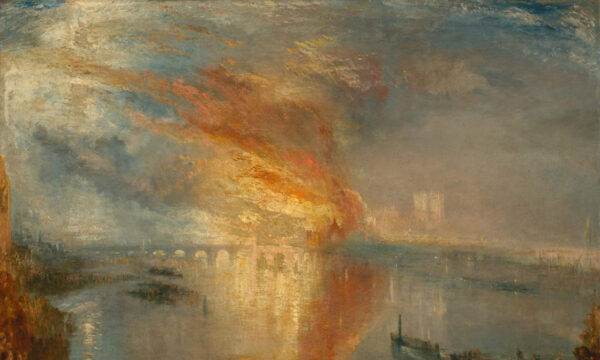
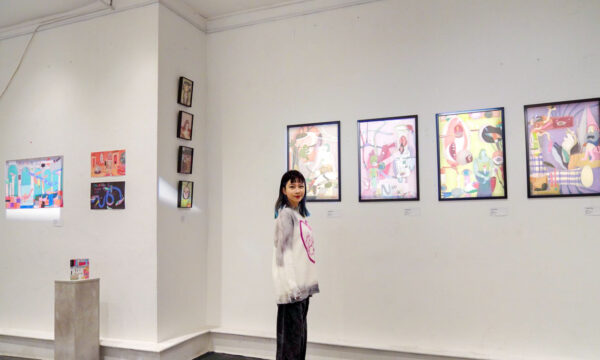
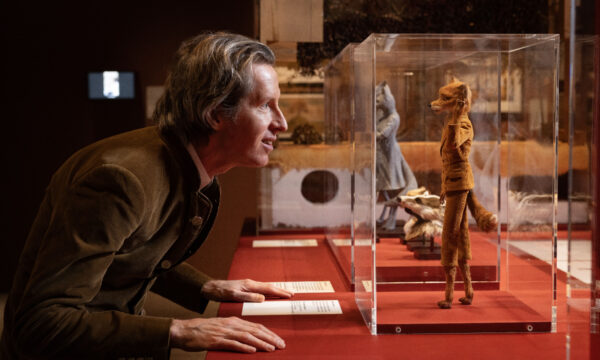
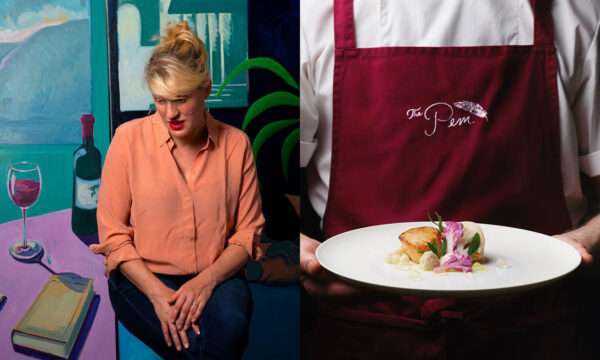
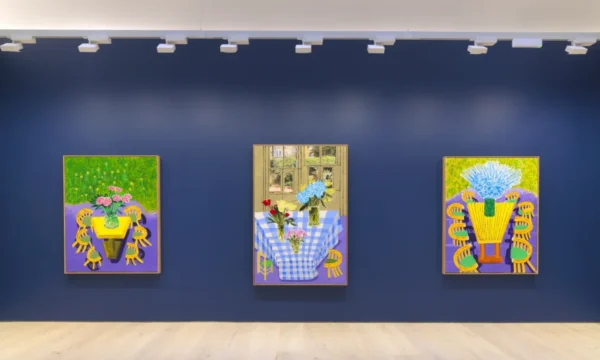
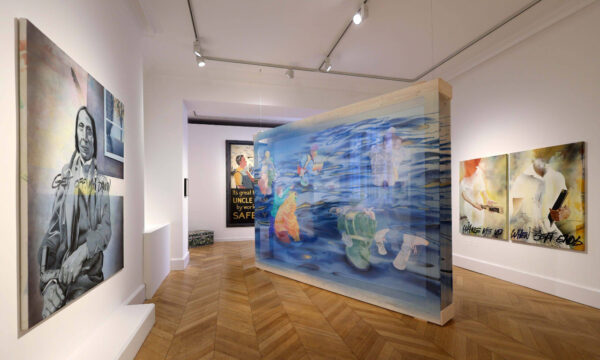
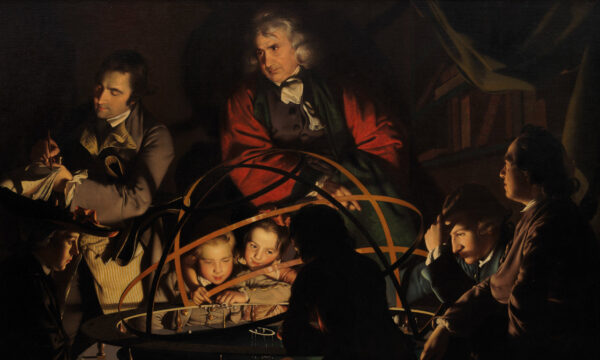
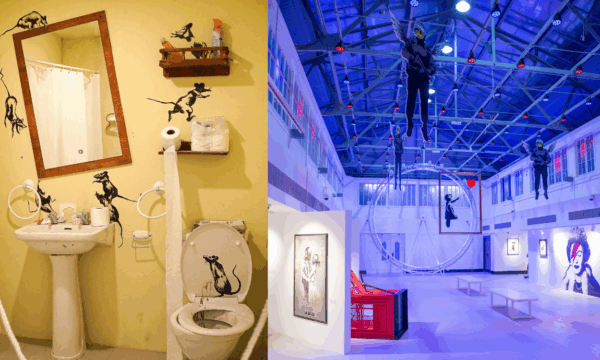

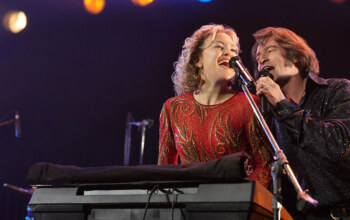

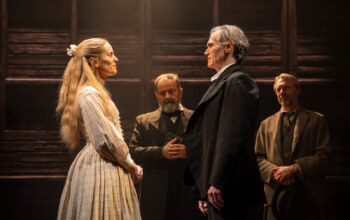

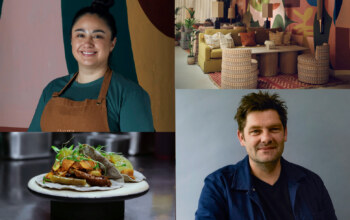

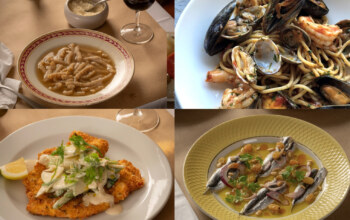


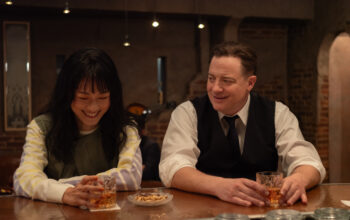
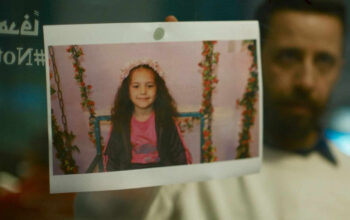
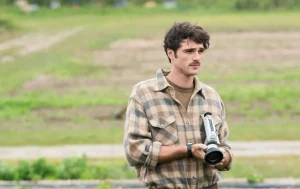
Facebook
Twitter
Instagram
YouTube
RSS